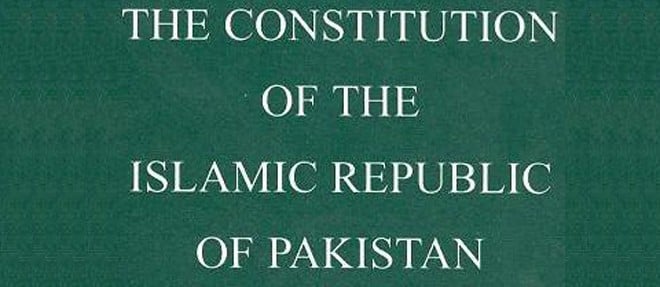

Rage is a terrible thing. It changes individuals and nations -- almost always for the worse. Perhaps an equally important facet of rage is denial and the corresponding ability it encourages to twist reality. I am not talking about the beneficial "distorted reality" that helped the likes of Steve Jobs -- I am talking about downright messed up thinking processes.
I have written against the idea of military courts before. And since then I have tried to pick the brains of people from all walks of life about this issue. The most common argument, advanced by lawyers as well as people from other backgrounds, is that our enemies are not humans and, most importantly, do not deserve due process. The claim is that we live in a different reality than other countries. This is not an argument that I find very persuasive -- although I do respect the concern that underlines it.
Laws and constitutional protections bind the state -- not just when things are hunky dory but particularly for times when things do not go to plan. Most constitutions have had framers who were acutely aware of the possibilities of external wars, internal strife and civil war. If these framers wanted to provide exceptions for state behaviour during the time of emergency then those could have been provided.
Indeed, our very own Constitution has provisions relating to imposition of emergency, the corresponding effect on Fundamental Rights and the limitations on state action. Our parliament was honest enough to take the position that the Constitution as it stood before the 21st Amendment did not allow for military courts. That was a commendable position.
Despite the ‘living breathing document’ theory that allows so many to twist and manipulate so many words in an enduring document such as the Constitution, our parliament proved wiser than most. It understood that the sanctity of the Constitution demands that if one is to introduce the concept of military courts, then it should be done through an act of open acknowledgement: if you have to set up military courts then take the position that this is an exception to the norm -- and that this is a temporary departure from the provisions of a constitution that otherwise expressly prohibits such a procedure.
Only a handful of senior lawyers, such as Salman Raja and S.M. Zafar, have publicly taken the position that the Constitution as it stood, before the 21st Amendment, did not allow for setting up of military courts to try civilians accused of terrorism.
However, many senior constitutional experts have taken the public position that the Constitution even without the 21st Amendment allowed for or envisaged military courts that can try civilians accused of terrorism. This is not just wrong but also disingenuous. And it links to my earlier point about rage and denial.
When a country is enraged, it is perhaps natural to think that your system is flexible enough to take any measures to protect the system. But this results in a poverty of analysis. It also puts the cart before the horse -- since you are desperate to get the answer that you want, you think that you can reason any way you please to get to the ‘desirable’ conclusion. Such an approach, however, makes a mockery of any constitution. If words have no meaning or any enduring quality to them, they are mere tools to achieve ends deemed desirable -- good or evil. What we then bank on is not the original compact in a written constitution but the benevolence of the interpreters. This can never be a desirable way of ensuring security, safety or good constitutional governance.
Even though I remain unpersuaded by the argument that due process should be abandoned in current times, I respect this argument far more than the position that the Constitution as it stood (pre-21st Amendment) allowed for military courts. One position is downright disingenuous. The other is legally and philosophically problematic but it is at least candid. It is not based on a distortion of a supreme national document -- it asks for that document to be ignored or suitably amended.
Much in this debate turns on the way you see the law as an enterprise. For some the aim is justice through consistency -- law is an exercise defined and steeped in consistent procedures and practices. There are others who disagree. For them the aim of the law is to punish evil and reward good. And to do this in a way that is practical and solves real world problems. There are no right answers here -- only competing arguments.
Yet neither of these two approaches should encourage us to engage in interpretations of the Constitution that belittle the document itself -- along with the jurisprudence surrounding it.
Will military courts solve the problem? I do not think they will. But let us wait and see.
There is the compelling argument that protection of witnesses is an important limb of the problem of trying terrorists. And since the state is too weak to protect witnesses, military courts are not going to lead to any better results. The counter-argument, of course, is that the whole point of military courts is to convince people without evidence.
Your stance on this issue is determined by whether that idea -- conviction without evidence -- makes you uncomfortable.